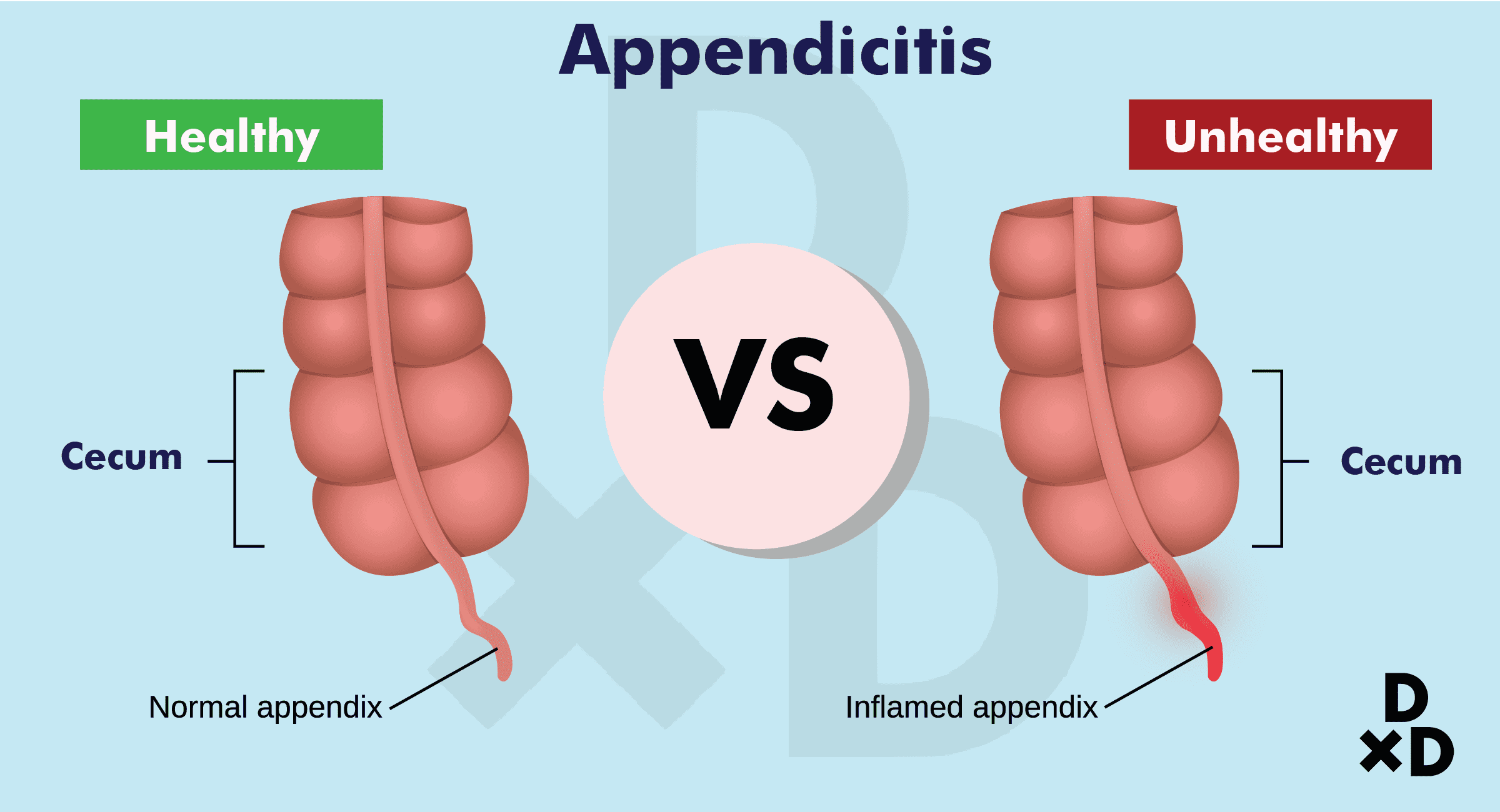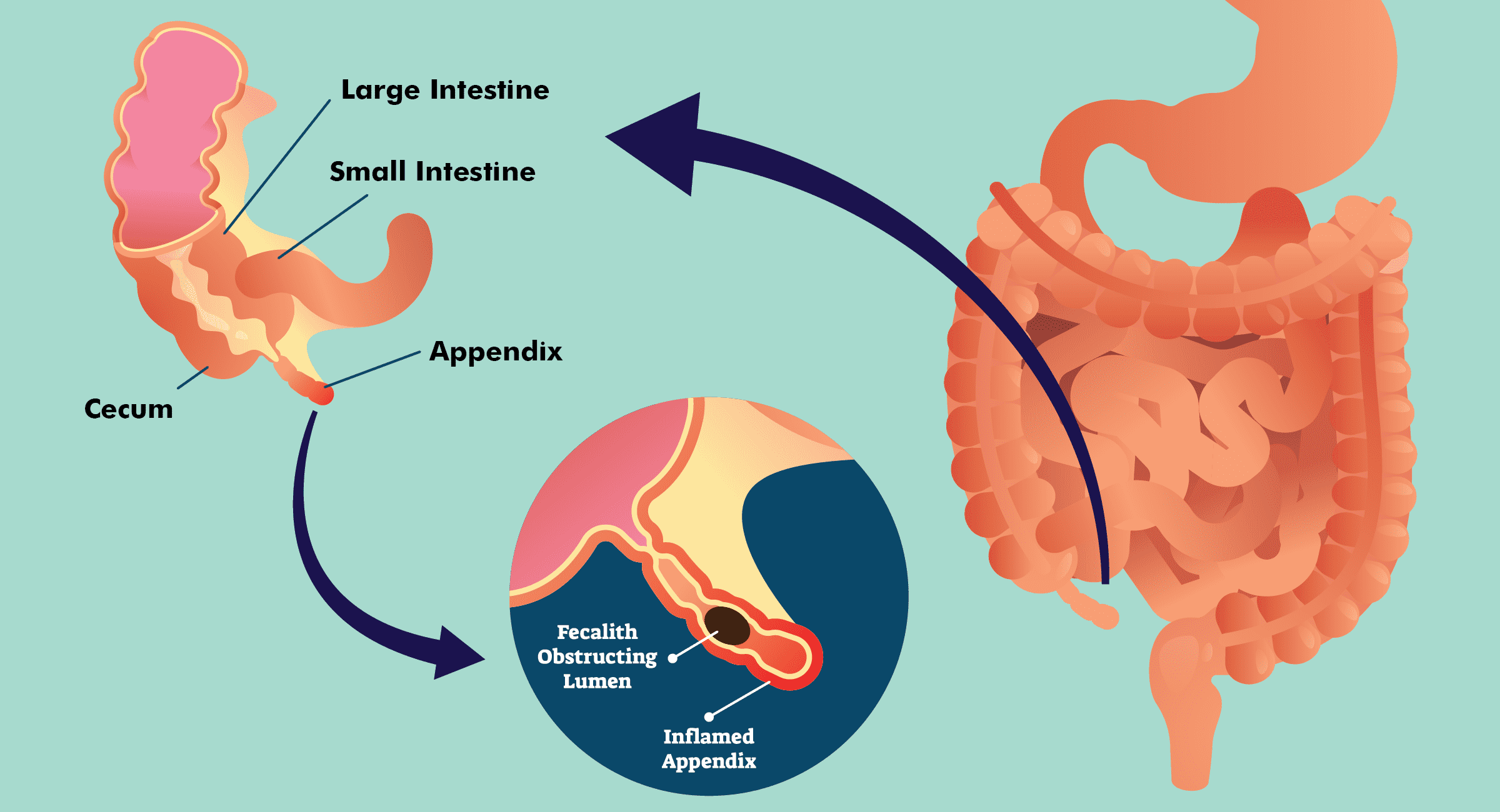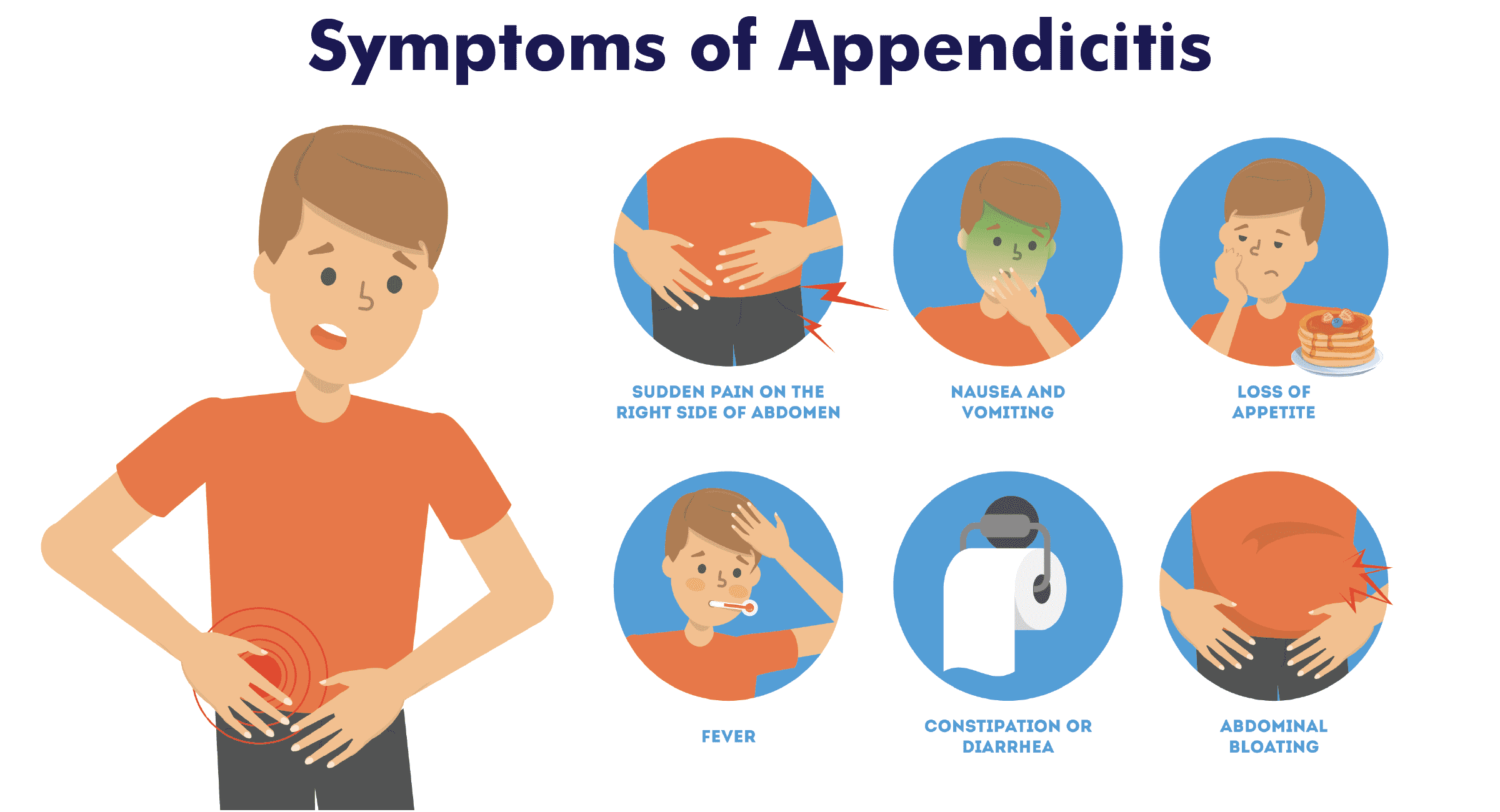The field of Gastroenterology covers a large area, including colonoscopy and appendicitis!
Anyone can suffer from appendicitis. It often occurs in those between the ages of 10 and 30. Nonetheless, very young children and the elderly can suffer from it too.
Appendicitis is considered a medical emergency. Hence, it should be treated as soon as possible. In this article, I will be sharing more about appendicitis as well as how it can be treated.
Read on to find out more!
You can read about finding a Vascular Surgeon and on Deep Vein Thrombosis here on Human!
What is appendicitis?

Appendicitis is an inflammation of the appendix and can either be acute or chronic. The appendix is a finger-shaped pouch connected to the colon, around the lower right side of your abdomen.
When you have appendicitis, you will feel pain in your lower right abdomen. As it worsens, the pain increases. In fact, our appendix may burst and cause bacteria to spill into the abdominal cavity. As a result, appendicitis can become serious and fatal. Therefore, it is an emergency and should be treated immediately [1].
What causes appendicitis?

However, the exact causes are still unknown. On the other hand, it can happen when it gets blocked. As a result, infection occurs and forms pus and swelling. Thus, you will experience the pressuring pain in your abdomen [2]. If not treated on time, the appendix can burst!
There are several cases that can cause the blockage:
- enlarged tissues in the wall
- pinworms
- trauma to your abdomen
- tumours
- hard stool
What are the symptoms of appendicitis?

Often, the pain starts vaguely near the abdominal area. On the other hand, the location of your pain may also vary as it depends on your age and the position of your appendix.
To list, the symptoms of appendicitis include [3]:
- A sudden pain on the lower right side of your abdomen
- A sudden pain that starts near your belly button and moves to your lower right abdomen
- A pain that worsens when you cough, walk or make other jarring movements
- Nausea
- Vomiting
- A loss of appetite
- Low-grade fever
- Diarrhoea
- Abdominal swelling
- Unable to pass gas
Thus, if you encounter any of these, you should inform your doctor as soon as possible. Time is crucial when it comes to both diagnosis and treatment.
Therefore, how is appendicitis diagnosed?

Diagnosing appendicitis is not an easy task. This is because some of the symptoms are often unclear or mixed up with illnesses, such as:
- gallbladder problems
- bladder or urinary tract infection
- Crohn’s disease
- gastritis
- kidney stones
Therefore, you should get a consultation with your doctor for an accurate diagnosis.
Your doctor will perform a physical exam by checking for tenderness around the lower right abdomen. One or more tests may be done to check for any signs of appendicitis. Tests can include the following [4]:
- Blood test
- Urine test
- Pregnancy test
- Pelvic exam
- Abdominal imaging tests such as ultrasound, X-ray, CT or MRI scans
- Chest imaging test
What are the treatment options for appendicitis?

Surgery is the standard treatment for the removal of the appendix. It is called an appendectomy. Nonetheless, your treatment depends on your condition. Hence, your doctor will recommend one or more of the following treatments to you:
- Surgery
- Antibiotics
- Pain relievers
- IV fluids
- Needle drainage
- Liquid diet
If you are lucky, you may be able to skip the surgery and get better. However, in most cases, the appendix has to be removed. If the appendix has not burst, antibiotics will be given, the pus and fluid drained, and the appendix removed. [5].
So, how long is the recovery time?

Your recovery will depend on:
- your overall health
- any complications from appendicitis or surgery
- the types of treatments you have gone through
If you have had laparoscopic surgery, you may be able to leave the hospital within a few hours or the next day. In contrast, you may have to stay for up to a week for open surgery as it may require more follow-up care.
You may be prescribed antibiotics or pain relievers to support your recovery process. You will usually be advised a suitable diet, activities, or changes to your daily habits while you heal.
Complications

Call up your doctor if you have:
- worsening pain and swelling,
- repeated vomiting,
- a high fever,
- a burning sensation or
- pus and other discharge at the place of your operation.
If you develop complications, your recovery may take longer. It can take around 2 weeks for you to return to your normal activities. As for vigorous activities, you may need to wait for 4-6 weeks.
Never ignore suspected appendicitis!
In short, appendicitis is a medical emergency that one should never ignore. Therefore, if you are experiencing any of the stated symptoms, be sure to consult a doctor as soon as possible.
Dr Lim Jit Fong is a colorectal surgeon at Lim Jit Fong Colorectal Centre. He specialises in general surgery as well as colorectal surgery. Dr Lim offers services ranging from anal fissures to functional disorders such as bowel incontinence. Furthermore, he holds several appointments. One of which is the President of the Society for Continence in Singapore.
Read more from Dr Lim Jit Fong in his Q&A here.













